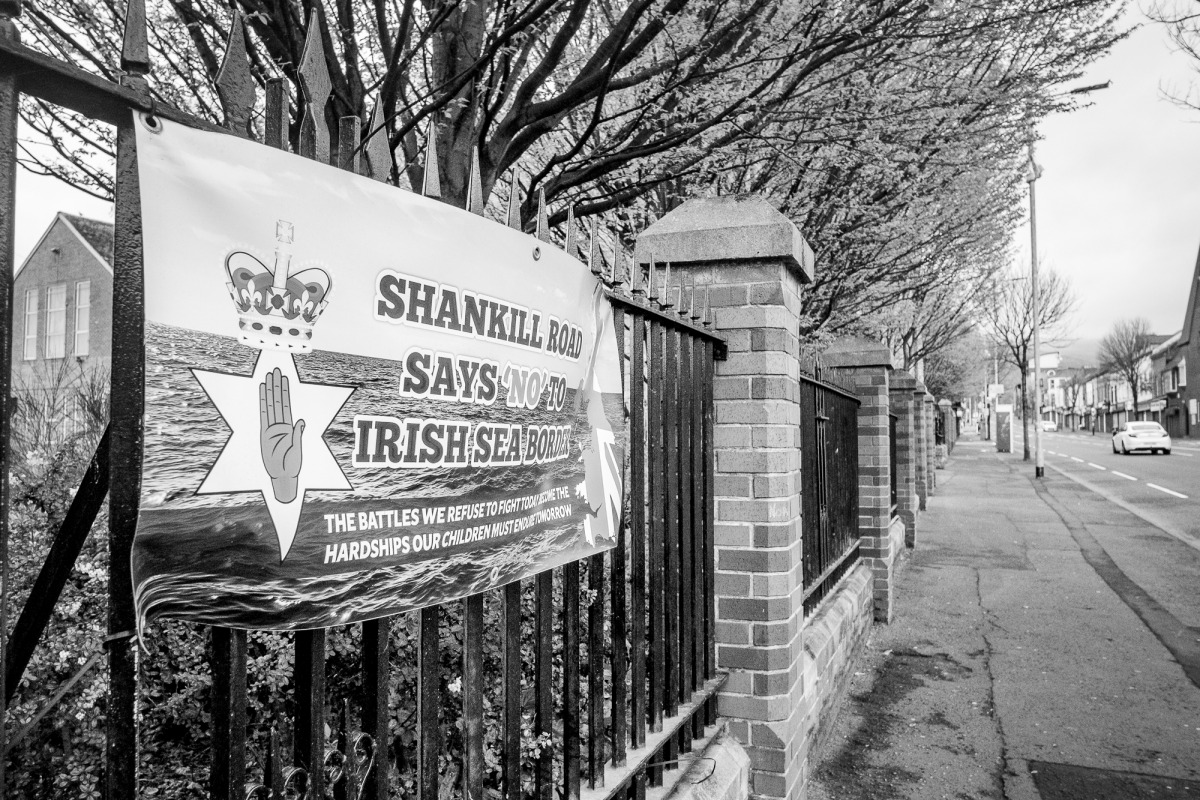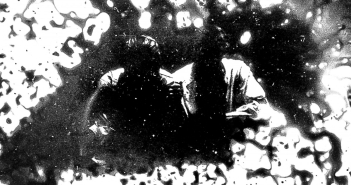The Democratic Unionist Party (DUP) was founded by the Reverend Dr. Ian Paisley in 1971. Paisley was an enigmatic figure in Northern Irish politics, offering a heady mixture of fundamentalist Christian values, Unionist rhetoric, and a cult of personality, culminating in a power sharing agreement with his greatest foes.
Paisley was a maverick, non-establishment figure who appealed to biblical scripture and a Unionist siege mentality. His rallying cries – some would say war cries – were: ‘For God and Ulster’ and ‘No Surrender’.
By ‘No Surrender’, he meant no surrender to ‘Papish’ Catholicism, and no dilution of the British identity which Ulster Protestants so obstinately cherish, and of course no diminution in British sovereignty over Northern Ireland. A more accurate description of this ‘No Surrender’ mantra could perhaps be no compromise.
This meant no compromise with Irish nationalism, with Irish Republicanism, with the Catholic Church, the Irish Republican Army, the Irish government or anyone holding an Irish identity in Northern Ireland.
Paisley also represented a branch of the global fundamentalist Christian Protestant Right, and its political voice became the Democratic Unionist Party (DUP). He would lead that party for thirty-five years. Never elected, he was nonetheless the supreme leader.
Ultimately, however, he came in from the cold to lead the Northern Ireland Assembly as First Minister. The man who cried ‘No Surrender to the IRA’, eventually joined a power-sharing executive with Sinn Fein, the political faction associated with the IRA, which became the largest Nationalist party.
Towards the end of his political career, Paisley was unceremoniously pushed aside, having lost the confidence of the party he had established. His son Ian Paisley junior seemingly still harbours a grievance about what he sees as a betrayal of his father, and his legacy.
After Paisley senior’s resignation in 2008, the DUP leadership baton was passed on to Peter Robinson, Paisley’s long time protege; then Arlene Foster in 2016, and most recently to Edwin Poots before Jeffrey Donaldson assumed the mantle just three weeks later. Arlene Foster’s demise came about as a direct result of Britain’s exit from the European Union. Brexit had been endorsed by the DUP through its Westminister MPs, but ultimately their interests were ignored.
Brexit has resulted in the Northern Ireland Protocol, which was agreed between the British Government and the European Union in order to preserve the Good Friday Agreement. The Northern Ireland Protocol creates a custom’s border between Northern Ireland and Britain. Thus, Northern Ireland remains within the European Common Market, creating a de facto border between Britain and Northern Ireland.
There is a strong impression of the same old story of the Troubles in Belfast, all over again. The new element is the pandemic affecting teenage lives.https://t.co/G1rMiYzSSy@broadsheet_ie @danieleidiniph1 @fellipelopes7 @BowesChay @Elzobub @connolly16frank @VillageMagIRE
— CassandraVoices (@VoicesCassandra) April 27, 2021
Sections of Unionism, Loyalism, and the DUP view this border as a dilution of their Britishness. A DUP party fed on a diet of No Surrender of their British identity at any price is again circling the wagons. When Foster was seen as incapable of removing the Northern Ireland Protocol she was dismissed as weak and a sell-out.
Ian Paisley junior is a DUP M.P. in Westminster who continues to represent his father’s old constituency of Antrim North. He seems to have been a driving force behind the coup that ousted Foster as leader.
In a throwback to the leadership of Paisley senior, in its first democratic leadership election the party elected another Christian fundamentalist in Edwin Poots, by the narrowest of margins.
Having been anointed by the ‘No Surrender’ brigade of the DUP Edwin Poots was chosen to resist any ‘surrender’ to the British government, and to continue the struggle over the Northern Ireland Protocol. Like King Canute, he stood against an unstoppable tide of forces beyond his control.
In order for him to nominate a new Joint First Minister to the Northern Ireland Assembly after Foster’s resignation, he needed to have the agreement of Sinn Fein, the other party in government. Sinn Fein price for jointly nominating leaders and preventing the structures of government from collapsing, was the implementation of the Irish Language Act – an Act, which had been previously agreed to by the party, but never implemented.
Poots, and Loyalists aligned to the party, would have no truck with the advancement of the indigenous language. They want no interaction with anything Irish. A settler-colonial identity refuses to contemplate the advancement of indigenous rights. But Poots also wanted to have his man elected as First Minister.
In order to find a way of working around to the Irish Language Act Poots and his Assembly team leader came up with a plan to allow the British parliament to legislate for the Act. Thus, Poots and his designate Paul Girvan signed an agreement with Sinn Fein and the British government, handing Westminster the power and a mandate to approve the Irish Language Act, in some form at least.
Poots and Girvan probably thought this would suffice to appease its base of voters, as the legislation would be the responsibility of the British government, rather than the Northern Executive including the DUP.
Instead, it created a mass revolt in the party, and those who lost the party leadership election to Poots joined with his erstwhile fundamentalist supporters to force him out. Once again, the No Surrender, No Compromise brigade within the party had triumphed.
Arlene Foster couldn’t renegotiate the Northern Ireland Protocol, a Loyalist and Unionist red line, and had to go. Seemingly even Poots had also sold out Unionism by permitting an Irish Language Act, which just goes to show how uncompromising the party has become.
By agreeing to the Irish Languagte Act and nominating Paul Girvan as First Minister of the Northern Ireland Assembly without his party’s approval Poots had signed his political death sentence.
In a year that sees the centenary of the establishment of Northern Ireland by Britain – when the island of Ireland was partitioned in 1921 – Unionism appears to be in complete disarray.
With the DUP fragmenting, we may also be witnessing the enduring wrath of a scorned political legacy. Those who felt the party had betrayed Paisley senior’s message of ‘No Surrender and No Compromise briefly recaptured the party leadership, seemingly only to surrender it again with Donaldson’s election.
Ian Paisley junior and those around him may be about to destroy the party his father created. Hell hath no greater fury than a political family scorned.




